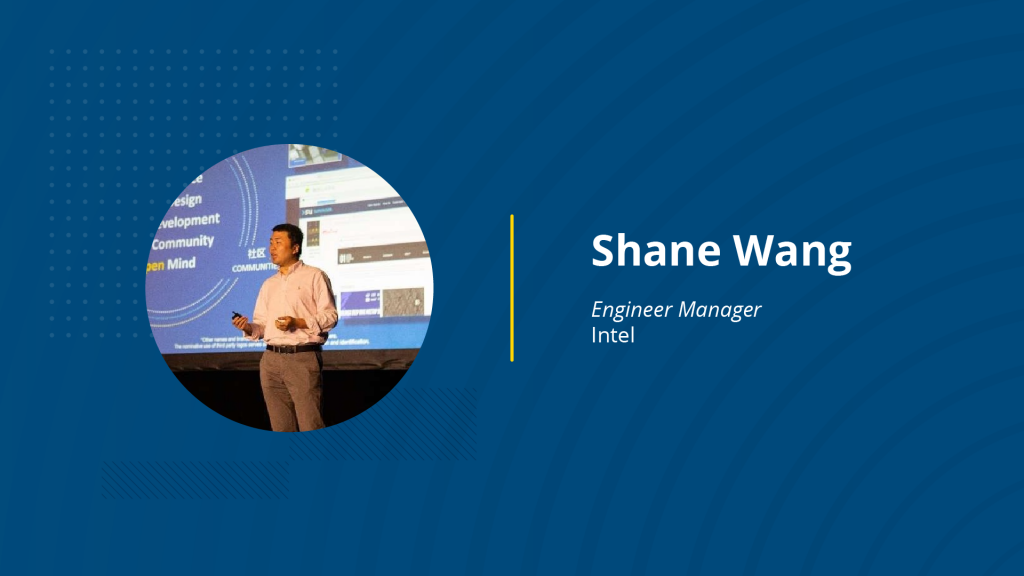
Storytelling is one of the most powerful means to influence, teach, and inspire the people around us. To celebrate OpenStack’s 10th anniversary, we are spotlighting stories from the individuals in various roles from the community who have helped to make OpenStack and the global Open Infrastructure community successful.
Here, we’re talking to Shane Wang from Intel. He tells the community about how he got started with OpenStack and his favorite memory from the last 10 years of OpenStack
How did you get started working with OpenStack and what are you doing now?
I transitioned to OpenStack from virtualization development in 2012. Because at that time cloud computing was very hot, I had some colleagues who left Intel and joined CloudStack, but my team and I chose OpenStack to work on, which is the right decision we made when we looked back.
Right now my job is managing an engineering team working on OpenStack, Ceph, ONAP, Akraino, etc. to enable Intel hardware capabilities in the open source projects.
What is your favorite memory from the last 10 years of OpenStack?
The most impressive moment in the last 10 years for me is the OpenStack Summit Austin (not the first one but the second one). It was so crowded at the conference venue, and so many OpenStackers gathered there and enjoyed the days for social networking, technical discussion, and sharing.
How did you contribute to the OpenStack community?
In the past, I contributed patches to the OpenStack community, especially in Nova. Now, I manage my team to contribute the code and also work as a coordinator and facilitator in the OpenStack community.
What advice do you have for the Stacker community and other growing open source communities based on your experience with OpenStack?
I think that the most valuable tips for the OpenStack community is to treat and view everything from a development perspective. As OpenStack becomes more mature, fewer functions are being merged into OpenStack. We should embrace more new projects or innovations to grow the community. I’m working on a couple of open source projects, most of them went to the Linux Foundation Networking umbrella, Linux Foundation Edge umbrella, Ceph Foundation or SODA Foundation for storage. I suggest to proactively approach those new open source projects or innovative programs to grow OpenStack and the OpenStack Foundation (OSF).
If I were to ask you in 2030, what do you think the OpenStack update will be?
Looking at those old and traditional projects, such as the Linux kernel, I think that will be the future of OpenStack. It is mature enough, and it’ll go to maintenance mode. It does not have much functionality but focuses on platform compatibility, e.g. ARM platform compatibility. And it focuses more on user scenarios. For example, more and more proof of concepts are developed based on OpenStack to meet the needs of new scenarios, but there are not many features on OpenStack itself.
Get Involved
If you’re interested in being featured to tell your stories about OpenStack, please email [email protected].
Follow the #10YearsofOpenStack hashtag on Twitter and Facebook and share your favorite memories of OpenStack with us!
Follow us on
Twitter: twitter.com/OpenStack
Facebook: facebook.com/OpenStack
WeChat ID: OpenStack











Leave a Reply